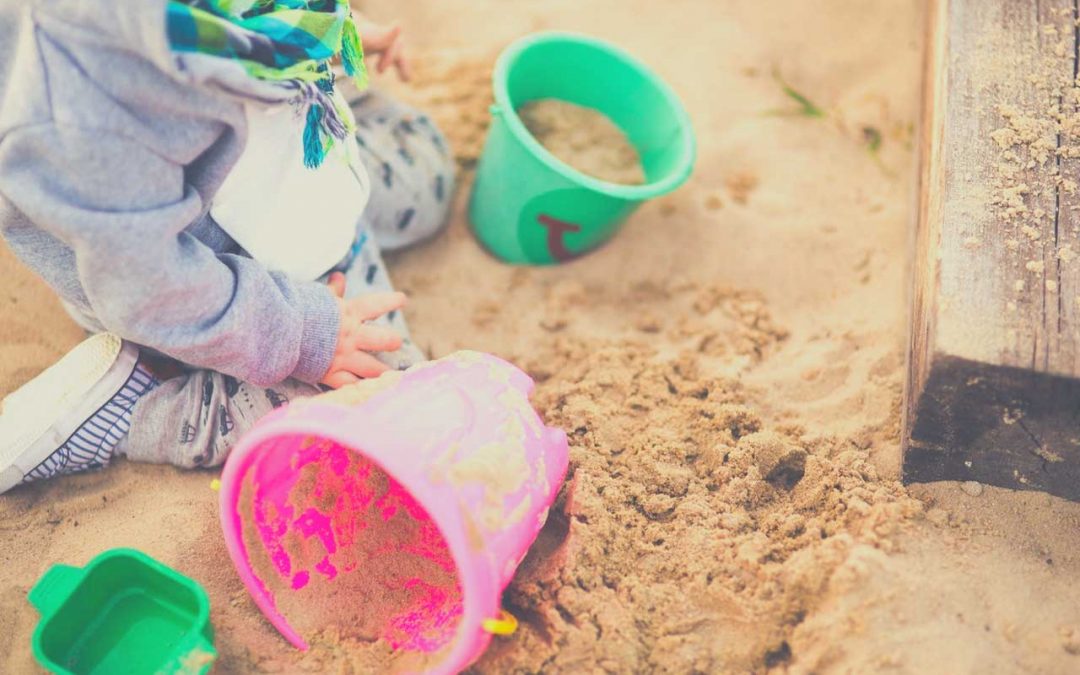Nothing pulls at your heartstrings more than your little one bursting into floods of tears every time you leave them at daycare. The thoughts that run through your head can be truly agonising; “Is it really so awful?” “Are they mean to him/her?” “Is she being bullied?”
Firstly, let’s try to put your mind at rest by telling you that such separation anxiety is a pretty common behaviour. It’s a normal part of development from around eight months old, reaching a peak between 14-18 months.* Crying at drop off is very normal behaviour for three and four-year-olds too, and even for some kids when they first start at school.
In general, most children soon settle after you’ve gone (blissfully unaware that they’ve left you a nervous wreck). But some pre-schoolers have a tougher time saying goodbye than others. It all depends on individual personality and traits. Remember, there’s no right or wrong. The ability to see your loved ones leave is a learning curve and one that has no rules as to how long it takes to achieve.
So let’s take a look at some of the reasons behind separation anxiety, and a few ways you can ease the tears (on both sides).
1. It IS going to happen: It’s quite simple, at some point your child is going to baulk at being left. It happens when they realise that you’re the person who supplies all the good things they need: love, security, comfort… And now you’re going to leave them.
Remind yourself that separation anxiety is a normal stage of development. And if you need a further boost, the fact that it’s happening shows you’re doing a great job! You’ve taught your baby that he/she can count on you. Yes, getting up for those 4 AM feeds, those constant cuddles, that never-ending love you dish out has created an incredible bond. So it makes perfect sense that those cries will be at their loudest when you’re about to walk the other way.
2. Be upbeat and happy: No matter how much you want to bawl yourself, leave your tears until you’re outside the door. Your one and only mission to accomplish when dropping off your child is to reassure him/her that this is a normal occurrence. Smile, say you’ll be back soon and re-iterate how much fun they’re going to have. This helps with how safe your child feels and portrays a positive message that really will get stronger the more times you do it.
3. Get staff feedback: Talk to the carers at the centre about how long it takes him or her to settle once you’ve gone. Because, crucially, it’s not the fact that they cry and cling to you that matters, it’s how long they take to calm down afterwards. In all likelihood, your little one will be happily playing within a few minutes. This self-calming behaviour is an essential skill that can take a while to learn. So don’t worry if your child takes weeks, months or even longer to manage it.
4. Start a ritual: It doesn’t matter what it is, but practising something each and every time you leave your child is a powerful comforter. It can be a phrase, a special hug and kiss or whatever, just do it every single time you leave them. There is nothing more comforting than predictability. Eventually, the simple fact of carrying out this ritual proves that you’re going to come back, so yet another way of instilling a feeling of safety.
5. Never reprimand: Positive reinforcement is always better than negative. Show empathy, and when you pick your little one up, make them feel good about how they dealt with the challenge in the morning.
The most important thing to realise if your child cries at drop off is that it really is just a phase. Eventually, those tears will fade. Although don’t be surprised if – just when you thought everything had calmed down – there’s a re-occurrence. Child development isn’t a simple straight line, there’s going to be plenty of ups and downs along the way.
At Nido Early School centres our experienced staff know just how important it is to work with parents as their children discover how to deal with their own emotions and fears. Every member of our team joins us because the development of children is their passion. If you’d like to discuss your child care needs and perhaps have a concern about how your little one will deal with the stress of being dropped off, visit https://www.nidoearlyschool.com.au/ to learn more. We’re just a phone call or visit away and we’d be delighted to meet you and understand how we can help with the pre-school care of the most precious person in your life.
* https://raisingchildren.net.au/babies/behaviour/common-concerns/separation-anxiety




